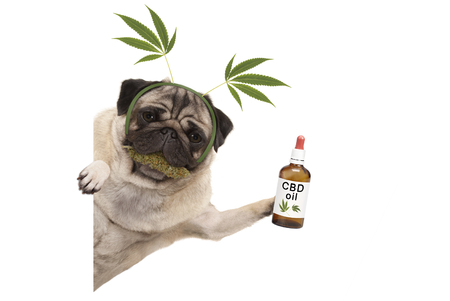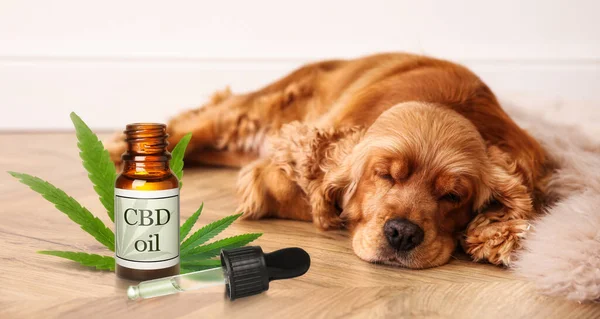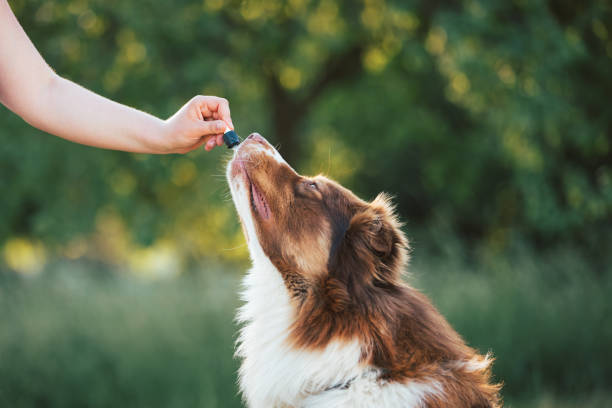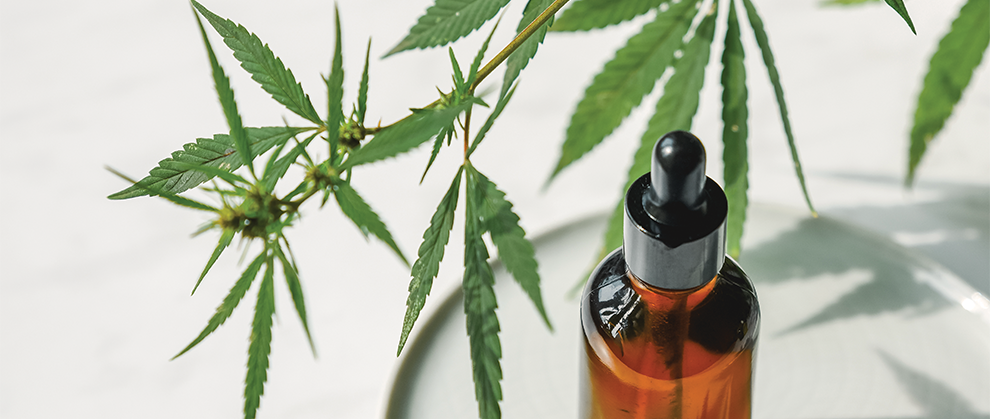Aggressive behavior in dogs can pose serious challenges for pet owners and negatively impact the well-being of both humans and canines. Growling, barking, lunging, and biting can stem from anxiety, fear, possessive behavior, or trauma.
This concerning conduct puts the safety of family members, strangers, and other pets at risk.
As more pet owners seek alternative remedies for their dogs’ troublesome aggression, cannabidiol (CBD) has emerged as a potential solution. CBD interacts with the endocannabinoid system, which helps regulate mood, pain, and other functions in dogs.
An increasing number of pet owners have turned to CBD supplements, oils, and treats to provide a calming effect and reduce aggressive outbursts.
This article will explore the science behind using CBD to manage canine aggression. We’ll cover how CBD works, its benefits and risks, proper dosage guidelines, and things to look for when shopping for CBD pet products.
With the right approach, CBD may offer a natural way to temper aggressive behavior and restore peace of mind in households with distressed dogs.

Understanding Aggressive Behavior in Dogs
Aggression in dogs encompasses a range of concerning behaviors directed toward people, other animals, or objects. Common aggressive actions include growling, barking, baring teeth, snapping, biting, and lunging. These behaviors stem from an intent to intimidate, dominate, defend, or injure.
Canine aggression can be categorized into several types:
-
Territorial aggression - Protecting space, food, toys, etc.
-
Possessive aggression - Guarding resources like food, toys, or attention from people/pets
-
Fear-based aggression - Defensive reaction to perceived threats
-
Dominance aggression - Asserting authority and rank
-
Predatory aggression - Instinct to hunt/chase smaller animals
-
Redirected aggression - Lashing out due to frustration
-
Pain-induced aggression - Response to injury or discomfort
Aggression often develops from anxiety, fear, traumatic experiences, or lack of proper socialization. Certain medical conditions can also cause dogs to be reactive or easily provoked. Pinpointing the root causes is key to managing this concerning issue.
Uncontrolled aggression poses safety risks to family, friends, strangers, and other pets. It also diminishes the quality of life for dogs themselves, limiting social opportunities and causing undue stress. Addressing aggression through proper training, management, and treatment is essential for establishing harmony in the home.
CBD and Its Potential Benefits for Dogs with Aggressive Behavior
Cannabidiol (CBD) is a non-intoxicating compound derived from cannabis plants. Unlike THC, CBD does not produce psychoactive effects. There is growing interest in the use of CBD supplements and treats to address various health and behavioral issues in pets.
CBD interacts with the endocannabinoid system, which helps regulate mood, pain perception, inflammation, sleep, and other functions in humans and animals alike. In dogs, CBD may provide potential benefits including:
-
Alleviating anxiety and fear
-
Producing calming effects
-
Reducing pain and discomfort
-
Controlling seizures
-
Easing gastrointestinal issues
For dogs struggling with aggressive behavior, CBD’s calming properties may help lower reactivity and outbursts. By easing anxiety and inducing a relaxed state, CBD may make dogs less likely to lash out from stress or perceived threats.
The compounds anti-inflammatory effects can also help soothe conditions causing pain and aggression.
However, CBD is not a cure-all solution. While it may help take the edge off, comprehensive training, proper socialization, and addressing medical issues are key to modifying aggressive conduct long-term. When partnered with professional support, CBD serves as a complementary tool for tempering unwanted behavior.
CBD's Influence on Aggressive Behavior
Researchers are still investigating the precise mechanisms through which CBD may mitigate aggression in dogs. However, studies point to several pathways CBD may act on to curb reactive behavior:
|
Mechanism |
Description |
|---|---|
|
Serotonin regulation |
CBD may increase serotonin levels which helps regulate mood and aggression. Low serotonin is associated with impulsivity and dominance aggression. |
|
Stimulating CB1 receptors |
CBD activates CB1 receptors involved in regulating anxiety, fear response, stress resilience and aggression. Activation may lower reactivity. |
|
Inhibiting FAAH enzyme |
This increases anandamide levels, an endocannabinoid that reduces anxiety and produces blissful effects. |
|
Neuroprotective effects |
CBD may protect the hippocampus and amygdala against stress-induced damage. These parts of the brain influence emotion and responses. |
|
Reducing inflammation |
CBD's anti-inflammatory properties may ease conditions causing discomfort and pain-induced aggression. |
|
Inducing sleep |
CBD can help improve sleep amount and quality, leading to lowered anxiety and irritability. |
|
Increasing sociability |
CBD has been shown to increase sociability in human studies. This may translate to increased positive social interactions for dogs. |
While human studies are more extensive, early canine-specific research and anecdotal evidence from pet owners suggest CBD can help lower anxiety, reactivity, and outbursts.
By interacting with the endocannabinoid system and neurotransmitters, CBD may induce a calmer state of mind and temper aggressive tendencies. However, more research is still needed on CBD's effects specific to canine aggression.

Choosing the Right CBD Product
When exploring CBD for curbing canine aggression, pet owners will encounter a variety of product types and factors to consider:
|
Factor |
Description |
|---|---|
|
Potency |
Pay attention to CBD concentration to match dosage to dog's size. |
|
Quality |
Choose products from reputable brands using high-grade CBD oil and natural ingredients. |
|
Lab Testing |
Opt for third-party tested products for purity, potency and safety assurances. |
|
Administration Method |
Pick a product matched to the dog's temperament and your dosage preferences. |
|
Veterinarian Guidance |
Consult a vet, especially for dogs on medication, pregnant or nursing. |
Carefully reviewing products and consulting professionals helps determine the optimal CBD solution for each dog's needs and disposition. Consistent use paired with behavior training can promote lasting improvements in aggressive behavior.
Administering CBD for Aggression
To use CBD safely and effectively for curbing canine aggression, proper administration and dosing is key. Here are some best practices:
-
Start low - Begin with the lowest suggested dosage based on the dog's weight. This is often around 0.25mg per pound.
-
Go slow - Gradually increase the dosage every 5-7 days by small increments like 0.25mg per pound until desired effects are seen.
-
Find the sweet spot - Stick with the lowest effective dose that provides results. Monitor for changes in behavior.
-
Consistent timing - Give doses at the same times each day, ideally morning and night, to maintain steady CBD levels.
-
Record effects - Keep a journal to track behavioral changes and CBD responses. Share this with your vet.
-
Create structure - Establish routines around meals, walks, playtime and training sessions. This provides stability.
-
Use preventatively - Administer CBD prior to situations that trigger aggressive reactions, if possible, to help prevent outbursts.
With patience and consistency using appropriate CBD doses, pet owners may see a reduction in the frequency and intensity of aggressive episodes. Maintaining open communication with your veterinarian ensures your dog’s needs are met safely.
Monitoring Behavioral Changes
When using CBD to address aggression in dogs, it is important to closely observe your pet's response to properly gauge the supplement's effectiveness.
Dog owners should monitor for behavioral changes that may indicate a reduction in aggression, such as decreased frequency and intensity of reactive episodes, improved tolerance around triggers, relaxed body language with less tension or pacing, reduction in destructive behaviors, and an increased ability to refocus and disengage from stimuli.
Documenting patterns of behavior over the course of several weeks can help owners determine when and if the CBD is producing positive results. Consistency is key, as it can take 4-6 weeks for the optimal effects of CBD to become apparent. Dogs with more severe cases of aggression may need a longer duration of CBD management and behavior training.
If minimal progress is seen, consulting a veterinarian about adjusting the CBD dosage is recommended, and additional training or medication may be warranted alongside CBD supplementation. Ruling out any underlying medical issues that could be causing pain or discomfort is also advisable.
Pet owners should continue socialization and obedience training while administering CBD. Refresher training courses can further ingrain positive behaviors and help reinforce and maintain reductions in aggression achieved through CBD.
With diligent monitoring and proactive adjustments as needed, CBD can be safely incorporated into a broader behavior modification strategy focused on curbing concerning aggressive conduct in distressed dogs.

Professional Consultation and Safety
While an increasingly popular supplement, CBD use warrants careful consideration and professional guidance. Before introducing CBD to manage canine aggression, pet owners are advised to schedule a consultation with their veterinarian.
Discussing the dog’s full medical history, current medications, and overall health is crucial for identifying any contraindications or potential interactions with CBD. Consulting a professional dog trainer or behaviorist is also recommended to assess behavioral triggers and establish a customized desensitization plan.
Veterinary experts can help determine appropriate CBD doses, recommend quality products, and monitor effects. They can address concerns about potential side effects, which are typically mild but may include lethargy, diarrhea, and changes in appetite.
With professional oversight, CBD can be administered safely as part of a comprehensive approach to curbing aggressive behavior. Your dog’s health and well-being should always come first when exploring natural supplements like CBD.
Comprehensive Behavior Modification
While CBD may help mitigate aggression, it should be combined with comprehensive training and behavior modification for optimal results. Identifying and addressing the root causes of aggressive outbursts is crucial.
Professional guidance can uncover triggers like fear, anxiety, possessive behavior, or poor socialization. Ongoing positive reinforcement training focused on establishing structure, building confidence, and promoting calm interactions is essential.
In conjunction with CBD, practices like counterconditioning dogs to stimuli using high value treats can alter negative associations. Environmental management like baby gates,place commands, and distraction techniques help prevent situations triggering reactive responses.
Canine socialization classes allow for controlled exposure and desensitization.
Implementing a multi-pronged approach provides long-term improvements, while CBD offers complementary support in increasing calmness, focus, and temperament. The synergy between natural supplementation and dedicated behavior training promotes happier, less reactive dogs and more harmonious homes.

Nurturing a Calm Canine
Aggressive behavior in our canine companions can be extremely concerning and disruptive for pet owners. However, there are solutions available to help mitigate these issues.
As covered in this article, the non-intoxicating cannabis compound CBD offers potential benefits in reducing anxiety, promoting calmness, and lowering aggressive outbursts in distressed dogs.
By starting with small doses, monitoring behavioral responses, and consulting veterinary professionals, pet owners may consider incorporating CBD oil, treats, or capsules into their dog’s routine. While not a cure-all, CBD serves as a complementary support when combined with thorough training, socialization, and environmental management.
As research continues to uncover CBD’s therapeutic effects, pet owners have an increasingly safe, natural option to help dogs cope with aggression triggers. When administered properly alongside comprehensive behavior modification, CBD’s calming properties hold promise for nurturing happier, less reactive canine companions.
With the right holistic approach, dogs and their families can share more harmonious lives.








